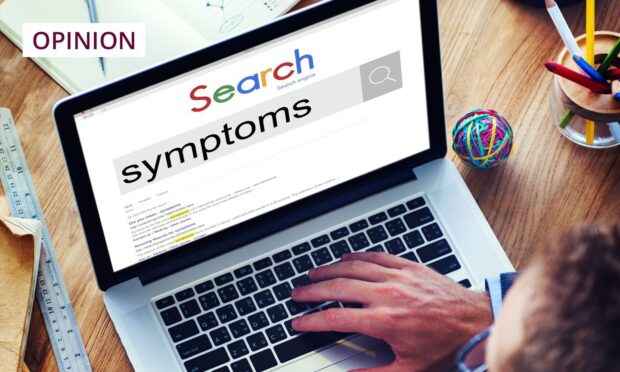In today’s digital age, the internet has become a ubiquitous resource for information, including health-related inquiries. Many individuals, like myself, have found themselves down the rabbit hole of symptom searches on search engines, attempting to decipher the cause of various discomforts and ailments. While self-diagnosis through online searches may seem like a convenient solution, it comes with its own set of challenges and implications. Recent research from Imperial College London suggests that search engine data could potentially aid in the early detection of diseases like ovarian cancer. However, the line between informed self-awareness and unfounded anxiety is a delicate one to tread. In this article, we explore the nuances of self-diagnosis, its impact on healthcare systems, and the importance of striking a balance between empowerment and reliance on medical expertise.
The Quest for Answers: As a self-proclaimed hypochondriac, I’m no stranger to the allure of symptom searches on the internet. Growing up alongside the evolution of search engines, I found myself turning to Dr. Google for answers to my health-related concerns. From minor ailments to imagined worst-case scenarios, the vast expanse of online information offered both reassurance and anxiety in equal measure. However, recent research indicating the potential utility of search engine data in diagnosing diseases like ovarian cancer has sparked a renewed interest in the role of self-diagnosis in healthcare.
The Promise and Perils of Self-Diagnosis: While the accessibility of online information empowers individuals to take control of their health, it also poses risks of misinterpretation and unnecessary anxiety. The fine line between informed self-awareness and hypochondria is often blurred in the realm of online symptom searches. Despite the potential benefits of early detection facilitated by search engine data, there is a pressing need to approach self-diagnosis with caution and discernment.
Navigating the Healthcare Landscape: In an ideal healthcare system, frontline healthcare workers would diligently address and document patients’ health complaints, leaving no room for doubt or uncertainty. However, the reality is far from perfect, with disparities in access to healthcare and systemic biases affecting the quality of care received. Against this backdrop, self-diagnosis emerges as a tool for empowerment and advocacy, allowing individuals to advocate for their health and well-being. Yet, the reliance on online information must be tempered with a critical eye and an awareness of its limitations.
The Role of Medical Experts: While self-diagnosis can serve as a preliminary step towards seeking medical help, it should never replace the expertise of trained healthcare professionals. The collaborative partnership between patients and healthcare providers is essential in navigating the complexities of diagnosis and treatment. Medical professionals possess the knowledge, experience, and diagnostic tools necessary to accurately assess and address health concerns. Thus, while online searches may offer insights and raise awareness, the final verdict should rest in the hands of medical experts.
Striking a Balance: As we navigate the intersection of self-diagnosis and medical expertise, it’s crucial to strike a balance between empowerment and reliance on professional guidance. The democratization of healthcare information through the internet has opened up new avenues for self-advocacy and awareness. However, it’s essential to approach online information with a healthy dose of skepticism and seek validation from trusted medical sources. By fostering a collaborative approach between patients and healthcare providers, we can harness the benefits of self-awareness while mitigating the risks of misdiagnosis and unnecessary anxiety.
In an era defined by information overload and digital connectivity, the quest for answers to health-related concerns has taken on new dimensions. While online symptom searches offer a semblance of control and empowerment, they also carry inherent risks and limitations. As we navigate the complex landscape of self-diagnosis, it’s essential to approach online information with caution and discernment. By fostering a collaborative partnership between patients and healthcare providers, we can harness the benefits of self-awareness while ensuring access to accurate diagnosis and treatment. Ultimately, the pursuit of health and well-being is a journey best undertaken with the guidance of medical expertise and the support of trusted allies.
